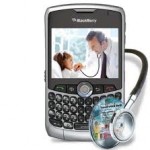 Few industries have taken to new digital technologies with as much enthusiasm as healthcare, with a huge rise in digital approaches to patient care, whether that’s in telehealth, big data analytics, wearable devices or mobile apps.
Few industries have taken to new digital technologies with as much enthusiasm as healthcare, with a huge rise in digital approaches to patient care, whether that’s in telehealth, big data analytics, wearable devices or mobile apps.
A recent article, published in Cell Systems, underlines the importance of unifying all of these trends.
The paper highlights how the incredible growth in health apps has allowed us to monitor pretty much every aspect of our life. There is however a disconnect as this information remains siloed from our digital patient records, and that they’re continued separation is slowing the transformation of medicine that they could power.App powered transformation
The authors contend that modern apps, and the next generation of tools that will follow them, could both reduce healthcare costs and substantially improve patient outcomes, especially in regards to the kind of personalized medicine outlined in President Obama’s State of the Union Address this year.
Most of the initiatives outlined in this address revolved around genomics, but the authors argue that this data could be even more useful if it was paired up with the kind of data generated by apps and connected with e-health records.
“How will the innovations from the President’s initiative reach the doctor and the patient, and how will the new data types needed for precision medicine be integrated into medical decision making?” they say. “Electronic health records are not designed for storage or display of genomic data nor for the computation that will no doubt be needed to eventually tailor therapy to a patient’s genome.”
Improvements needed in e-health records
One issue is that many existing e-health record systems fail to support standardized interfaces for accessing the data contained inside them.
This makes it expensive and time consuming to access the data and begin improving healthcare. What’s more, any tools created to access the data are often limited to specific systems so cross-fertilization is limited.
Moves are afoot to make this a reality, with a number of recent collaborations occurring between hospitals, vendors and other organizations to ensure standard APIs are adopted for reading and writing to e-health systems.
“A good app, distributed widely, could reshape practice overnight,” they conclude. “An innovator’s idea, whether to improve care through precision medicine or through payment reform, becomes implementable at the point of care across the healthcare system. Agreement on, implementation of, and adherence to a standard, public, free, and open API will promote a new form of interoperability transforming healthcare into a modular plug and play system, dramatically increasing the rate of progress while reducing the cost of change.”
This is a huge area of growth for me. I'm just not at all convinced that the NHS is agile enough to take advantage of all the innovation that's taking place.
What a great blog, I’m definitely gonna share this with my friends and I’ll be calling back to read more.